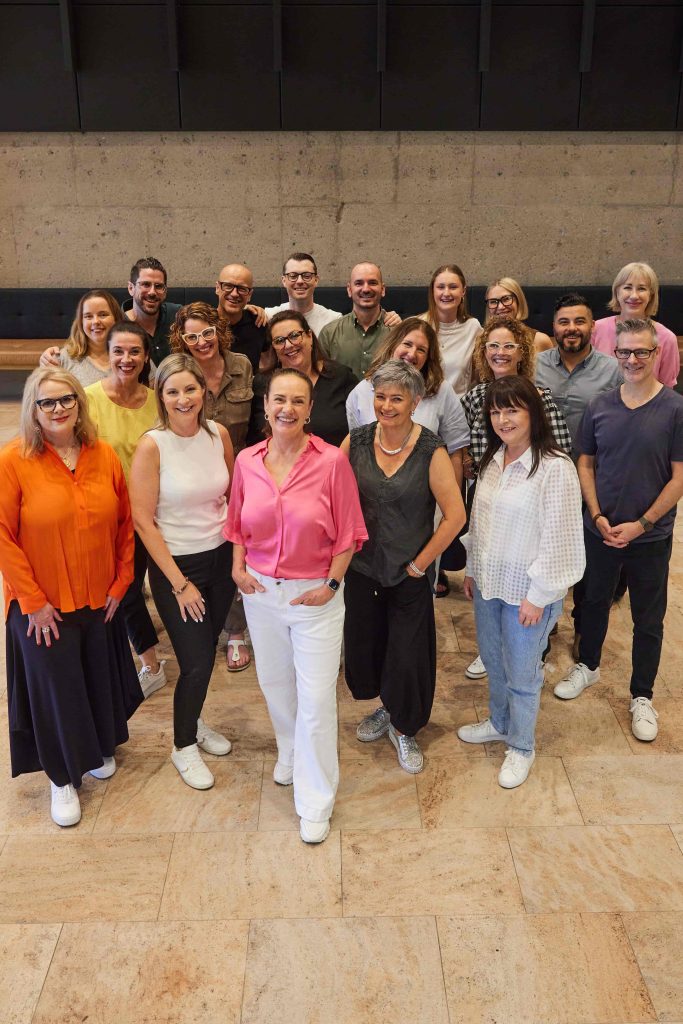Does your innovation process look a little something like this? Faced with a challenge, you secure budget and put some experts into a war room. They meet over six to eight months to brainstorm and devise the perfect solution. With much fanfare, the solution is unveiled …
… only to find it doesn’t work in the next phase.
Don’t get me wrong. Failing is fine – it’s a stepping stone and an essential part of the process. The issue here is momentum. You’ve lost it. The time and resources injected into the process haven’t delivered, and now there is a lack of appetite. Maybe you get to go back to the drawing board or perhaps the project is written off.
It’s a tale as old as time in innovation. But this approach is likely the reason projects get derailed (and why innovation gets a bad rap!).
Here are some of them.
- There are no guardrails on brainstorming
Innovation is often romanticised as a process driven purely by creativity, where you need to be a creative thinker to thrive. But innovation is, and should be, a business process. While creativity sparks ideas, structure is what transforms them into tangible outcomes for the organisation.
Any innovation project must put guardrails around the creative process, too. Think of it as ‘freedom within a framework’. IDEO’s 7 Simple Rules of Brainstorming gives some great rules around the creative process, and it’s an area where an external facilitator can provide significant value.
The other critical step is to set a timeframe. We know that pressure transforms coal into a diamond, and the same is true for groups. Timeframes help keep people on track towards the goal. Months of brainstorming will lose crucial momentum.
- You’re striving for perfection
We all want the best possible solution, but seeking the perfect one is a fast track to inertia. In this landscape, no one wants to be the one to decide to progress an idea, lest it’s not perfect.
But the problem is that we don’t actually know if an idea is perfect (or even good!) until we try and do something with it.
When the brainstorming timeframe is up, identify the idea/s with the most potential and just get moving.
It takes a leap of faith and the support of leadership to do this, to just go forth, but one of three things will happen:
- You’ll fail fast and learn from it.
- You’ll adapt the initial idea as you go along.
- You’ll succeed!
Whatever the outcome, maintaining momentum and learning real-world lessons is better than sitting in a room debating the unknown as the potential diminishes.
- You’re getting bogged down in expertise
Whether you’re solving a technical or adaptive challenge, it makes sense to go to experts, right?
Well, to some degree, but seeking broader perspectives is crucial.
Imagine you want to improve safety around machinery on construction sites. So, you bring in some engineering experts to solve it.
They see the challenge through the lens of their expertise. It’s like they are in a deep hole, looking up with a narrow field of vision.
But that’s not the problem. That’s what they’ve been asked to do: apply their expertise. So, they’ll likely look at the research, examining all angles and debating potential engineering solutions during the brainstorming phase.
This will take a decent chunk of time and resources and may not even lead to the most effective solution. In our example, someone who doesn’t know the constraints and restrictions is more likely to generate new solutions.
It’s not about avoiding experts; expertise is critical. It’s about building a diverse team, pairing your expert with a scout at the top of the hole who is unconstrained by deep expertise. Bringing in people with different thinking styles and experiences from across your organisation will lead to exploring a much wider range of solutions.
Of course, you’ll lean heavily on your experts to evaluate, experiment and implement the chosen solution/s in the next phase. But in this initial stage, they aren’t your only source of ideas.
Looking for support to keep your next innovation project on track? I’d love to discuss how Phuel can help you achieve your innovation goals.





